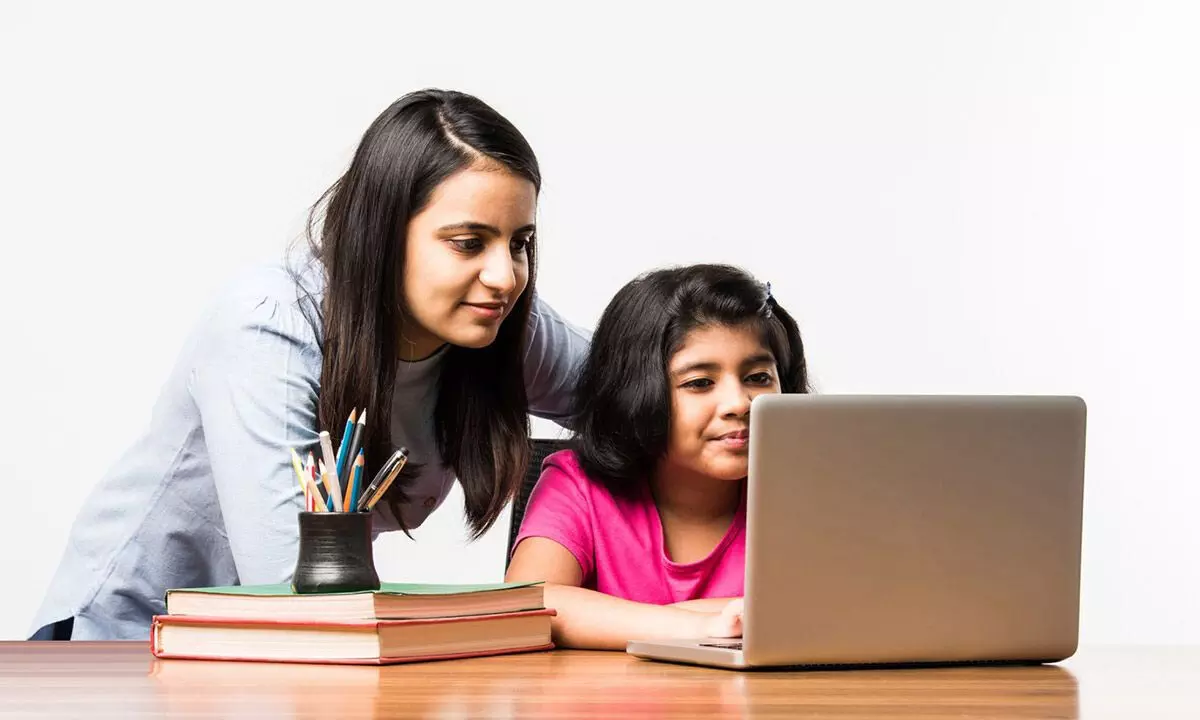How some children prospered in pandemic online learning

How some children prospered in pandemic online learning
For parents, children and teachers, one of the most striking memories of the pandemic will be the sudden transition to online learning.
For parents, children and teachers, one of the most striking memories of the pandemic will be the sudden transition to online learning. Many educators, parents and children struggled with online education when schools were closed, and were relieved when classroom instruction resumed. While media often seemed to report on negative aspects of online schooling, this was not a universal experience.
In my education research with international colleagues about socially innovative interventions to foster and advance young children's inclusion and agency in society during the pandemic, we worked with teachers as they implemented research insights about teaching practices that support listening to children's voices. In our study, we saw that through the pandemic, for some children, the online environment was an extension of how teaching practices like dedicated dialogue circles presented ways children's opinions and thoughts could be shared. For these children, enforced online schooling overall was a positive experience and not a struggle. In Canada, our research took place during almost the entirety of the pandemic in diverse and economically challenged Eastern Canadian schools.
Some students preferred online learning
Classrooms can be intimidating social spaces, and when they suddenly became virtual, some students found the digital space better suited their needs. Xavier was a newly arrived Canadian who had just entered Grade 4 when the lockdown began in the spring of 2020. We learned that the online classroom gave him catch-up time, within a welcoming space, in which he could build English language skills. Developing friendships, relationships and furthering educational goals all came easier to him when the confusion of a new language was eased, and he was able to learn at his own pace. The adaptability of the digital space was important. The stability, quietness and the possibility for students to go at their own pace — and some benefits of this — all became more transparent with the pivot to online classrooms.
A break from language barriers
Online learning gave some children autonomy, and a break from the business of curriculum for children to work independently on projects. In one home-based project shared online, Xavier constructed an entire city out of cardboard boxes left over from his recent move to Canada. He was delighted to share this with his classmates, free from the language barrier that made his in-school days a struggle. When asked why it was easier to talk to each other on camera, a new Canadian student, Abdul, who sometimes struggled with English, said "because no one could interrupt me." Some new Canadian parents were able to learn English together in the virtual classroom. One teacher has an email from a parent to thank her for the wonderful picture books and reading time she shared daily. Families reunited for the many out-of-province workers who reside in Alberta but call Newfoundland and Labrador home other days of the year, online schooling brought family reunification. One student, Roxy, talked about how less stressful life was while in Alberta with both her mother and father: "Mom went to work in Newfoundland online and I went to school," she said. She was also able to assist an aunt with a newly arrived baby while residing in Alberta.
Parents played larger role
We found in our study that parents also played a larger role in daily education, both learning from and assisting in teaching their children. Children like Liv, whose mother helped her perform a song during her classroom's "show and share," integrated their parents and home lives into the virtual learning. Although some children struggled to find quiet spaces, even these scenarios had positive effects as parents, (reluctant or not), entered into discussions about their children's school lives.
One mother, Tammy, pointed out that her children's online classes gave her a unique window into a part of her children's lives that she had previously known little about. She said:"It was amazing to see how the teacher interacted with the children. My daughter was much more animated than she is at home, she shared a lot more. She's not always eager to go to school, but she could not wait to log onto the google class."
Free from disruptions
Some children enjoyed an environment free from the distractions found in classrooms, such as school announcements or classmates' challenging behaviours. Children were also exposed to each other's home settings, which encouraged mutual empathy. "Everyone's home lives went on around them," remembered one teacher. "Pets and younger siblings came and went, phones rang, people ate, doorbells rang — we all just got used to it." Some students were quick to point out the extra time earned from not having to go to after school programming and childcare. In our focus group interviews with teachers, they noted that some children who were behaviourally challenged in the classroom did much better online. "Perhaps it made the learning environment a little less overwhelming," explained one teacher, "and so the focus was more on academics."
More sharing
One of the best things about online learning for teachers in our study was that all their students were able to share on a more private level. Breakout rooms allowed children to connect with the teachers and their friends in a disruption-free way. Over time, parents and teachers also discovered aspects of the experience they found positive. In the past two decades integrating digital devices into education has often been an awkward process, often with more effort going into limiting their use and distractions, rather than embracing their benefits. As educators, we need to rethink how children and technology can interact in the classroom and various ways children's voices can be supported in different spaces.
(The author is a Professor, Faculty of Education, Memorial University of Newfoundland)

